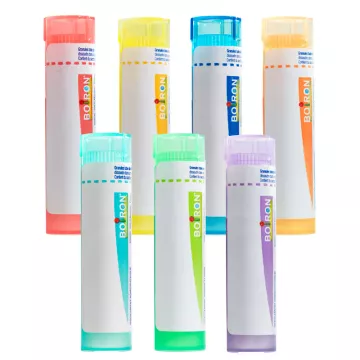
What is pertussis?
Whooping cough is a highly contagious respiratory infection caused by the Bordetella pertussis bacterium. It is characterized by severe coughing fits, followed by wheezing that is often described as "whooping". The disease can affect people of all ages, but is particularly dangerous for infants under six months of age.
How is pertussis transmitted?
Pertussis is transmitted mainly by respiratory droplets expelled by an infected person when coughing, sneezing or talking. Close contact with an infected person significantly increases the risk of contracting the disease. Preventive measures such as wearing masks and vaccination are crucial to limiting the spread of this infection.
What are the symptoms of whooping cough?
The initial symptoms of pertussis are often similar to those of a common cold, including a runny nose, sneezing, low-grade fever and cough. After one to two weeks, the cough worsens and becomes more violent and uncontrollable. Coughing fits may be followed by a characteristic sound when breathing, which can last for several weeks.
How is pertussis diagnosed?
The diagnosis of pertussis is generally confirmed by laboratory tests that detect the presence of Bordetella pertussis bacteria in respiratory secretions. A PCR (polymerase chain reaction) test is frequently used for rapid, accurate detection.
What are the treatment options for pertussis?
Treatment of pertussis generally includes antibiotics to eliminate the bacterial infection. The most commonly prescribed antibiotics for this condition are azithromycin, clarithromycin and erythromycin. It's crucial to start treatment at the very first symptoms to reduce the severity of the disease and avoid the spread of the pathogen.
How can pertussis be prevented?
Prevention of whooping cough is based on vaccination. The pertussis vaccine is often administered in combination with diphtheria and tetanus vaccines. It is recommended to follow the vaccination schedule from infancy onwards, with regular boosters to maintain immunity. Vaccination of pregnant women is also encouraged to protect infants from birth.
Is pertussis dangerous for certain populations?
Pertussis is particularly dangerous for infants under six months of age who have not yet completed their series of vaccinations. It can also be serious in the elderly or those with pre-existing medical conditions. Special attention is needed for these at-risk groups.
Is it possible to contract pertussis more than once?
It is possible to contract pertussis more than once in a lifetime, although the disease is generally less severe in people who have been previously infected or vaccinated.
How long is pertussis contagious?
The contagiousness of pertussis generally begins with the onset of the first symptoms, and continues until around two weeks after the onset of severe coughing fits. The use of antibiotics can shorten this period. It is important that infected people limit their contact with others, especially infants and immunocompromised people, during this period.
Is pertussis seasonal?
Pertussis is not highly seasonal, unlike other respiratory diseases such as influenza. However, increases in the number of cases can be observed periodically. Continuous surveillance and vaccination are essential to prevent whooping cough outbreaks at any time of the year.
What are the risks of complications from pertussis?
Complications from pertussis can be severe, particularly in infants and people with weakened immune defenses. Complications include pneumonia, respiratory failure and, in extreme cases, brain damage due to hypoxia (lack of oxygen). Early treatment and vaccination are essential to minimize these risks.
Are there alternative treatments for pertussis?
Although antibiotics remain the main treatment for whooping cough, certain supportive treatments can be beneficial. Adequate hydration, the use of a humidifier to help clear the airways, and rest are recommended. Natural remedies and supplements should always be discussed with a healthcare professional before use.
How is pertussis managed in infants and young children?
The management of pertussis in infants and young children requires special attention. In addition to antibiotics, close medical supervision is often required to ensure that the child is breathing properly and receiving sufficient oxygen. Hospitalization may be necessary in severe cases to provide respiratory support and monitor potential complications.